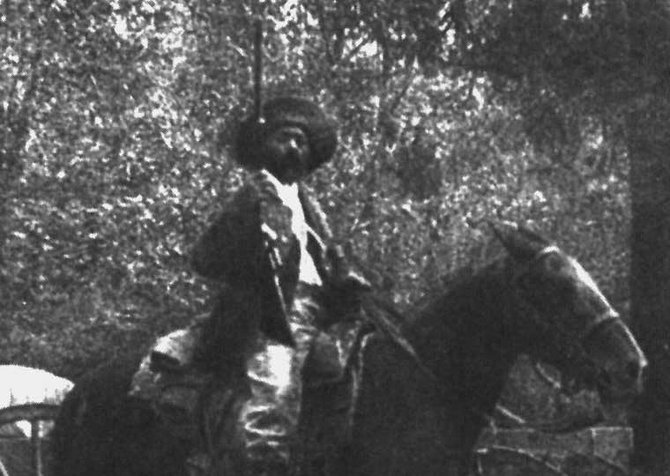By late afternoon, most of the hunting party—including 20 of the 28 dogs—had given up for the day. After a day-long chase that began the morning of Nov. 15, 1902, only President Theodore Roosevelt, John Avery McIlhenny and their guide, a noted bear hunter named Holt Collier, remained in pursuit of what a New York Times reporter described as "a big fellow" of a black bear near Smedes, Miss.
During the hunt, as legend has it, trackers had trapped and tied an old bear to a tree for the president to shoot and kill; Roosevelt refused, which gave rise to the invention of the teddy bear. Such hunts also led to the near-extinction of the Louisiana black bears, found in parts of Mississippi, Texas and Arkansas.
On Feb. 27, The Conservation Fund and U.S. Fish and Wildlife Service announced the addition of 724 acres of restored forest in the Holt Collier National Wildlife Refuge, the only national park named in an African American's honor. Officials from FWS say the reforested area of bottomland hardwood trees will provide ideal habitat for Louisiana black bears—which remain on the federal list of threatened species—as well as replenishing grounds for native and migratory birds.
Bi-partisan legislation from Republican U.S. Sen. Thad Cochran and Democratic U.S. Rep. Bennie Thompson established the refuge in 2004. Information from the conservation fund states that officials completed most of the restoration with private funds in 2006. Congress helped the effort along in the 2014 appropriations bill by directing some oil and gas royalties toward land protection and recreation opportunities.
"The additional 724 acres Holt Collier National Wildlife Refuge of Greenville has received will have a significant economic impact on our state, and foster the interests of hunters and anglers alike," Thompson said. Thompson is the only Democrat and only African American member of Mississippi's congressional delegation, representing the Delta and other regions where Holt Collier spent most of his fascinating life.
Collier was born a slave on a plantation that Howell Hinds of Jefferson County owned. Collier reportedly killed his first bear when he was 10 years old; eventually, he would be responsible for providing meat for the plantation where he remained a slave. Collier grew up with his master's son, Thomas, who later became a general in the U.S. Army during the Battle of New Orleans in the War of 1812. Hinds County is named for Thomas Hinds.
During the Civil War, Collier participated alongside his masters in Company I of the Ninth Texas Cavalry and served as a Confederate spy. During the course of his lifetime, Collier is credited with killing more than 3,000 bears, surpassing the combined total of legendary white frontiersmen Davy Crockett and Daniel Boone, FWS information shows.



Comments
Use the comment form below to begin a discussion about this content.
comments powered by Disqus